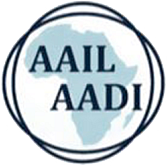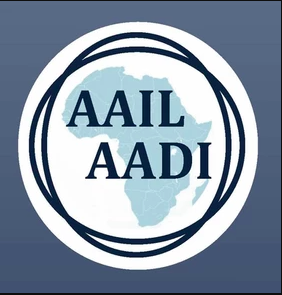Having worked in various international organizations, I am asked this question with worrying frequency.
Our continent is blessed with incredible talent, some of our universities have exceptional academic traditions, and we have produced lawyers who have made significant contributions to modern legal thought. Yet, despite this, I keep hearing this question. I do not know exactly why there seems to be an insufficient number of African public international lawyers working in the intergovernmental system, although there are, no doubt, a number of varied causes (opportunity, finances, etc.).
Nevertheless, the multilateral system needs well-qualified Africans to be better represented in the international civil service. The UN System organizations, as well as other intergovernmental institutions, are created by and for all their Member States, including those of Africa. Their secretariats should reflect the diversity of the membership. Legal departments, in particular, should represent a diversity of legal traditions.
Indeed, in the case of the Food and Agriculture Organization of the United Nations (FAO), Article VIII of the Constitution specifically provides that “In appointing the staff, the Director-General shall, subject to the paramount importance of securing the highest standards of efficiency and of technical competence, pay due regard to the importance of selecting personnel recruited on as wide a geographical basis as is possible”.
However, while FAO is well-known in Africa, this reputation is linked to the technical areas of its mandate. People know about FAO’s support for farmers, the humanitarian assistance it provides in various parts of the world struck by natural and man-made disasters, and the many other forms of technical assistance that it provides. There is, however, limited knowledge of the legal activities of FAO.
Similarly, while many African technical experts work for FAO – nutritionists, vets, forestry and fishery experts, agricultural economists, etc. – there are few African lawyers on the staff. FAO is not the only intergovernmental institution where I have experienced few applications from African men and women who have the right qualifications and experience when vacancies are announced for legal positions.
Yet, like other intergovernmental organizations, FAO is an institution created by an international treaty, and whose activities are entirely regulated by international law. The legal work undertaken to support the operations of FAO is wide and varied. For example:
-
For every project implemented by FAO, there must be an agreement with the beneficiary country. In most cases, donor agreements are also required. These must all be negotiated with a view to protecting the Organization’s impartiality and ability to function independently, and to protect the assets that are administered on behalf of the Members.
-
FAO’s rules and programme of work are determined by its Governing Bodies, which are the: Conference; Council; Programme Committee; Finance Committee; Committee on Constitutional and Legal Matters; and Technical Committees on Agriculture, Commodity Problems, Fisheries and Forestry and the Regional Conferences for Africa, Asia and the Pacific, Europe, Latin America and the Caribbean, and the Near East. There is also the Committee on World Food Security, which is accountable to both the FAO Conference and the UN General Assembly (through the Economic and Social Council). All of these organs develop resolutions and decisions, and advise on or establish new programmes and related subsidiary bodies. They all function in accordance with their own rules of procedure in the context of their own mandates. Legal support is needed in respect of all these aspects of their activities.
-
In addition to its Governing Bodies, FAO has more than 200 Statutory Bodies, established by the Governing Bodies to operate on a global or regional basis to advance its objectives. Each Statutory Body has its own mandate, terms of references and rules of procedure, and some are established by treaties negotiated and concluded pursuant to the FAO Constitution. The work of these Bodies is varied and, of particular relevance to the legal practitioner, some Bodies develop guidelines and standards relating to food and agriculture (such as the Codex Alimentarius Commission which develops standards to “protect the health of the consumers and ensure fair practices in the food trade”). As in the case of the Governing Bodies, legal support is needed in respect of all their activities.
-
The Office of the Legal Counsel includes a Development Law Service, which assists the Members, at their request, in drafting legislation and regulatory measures on matters related to food and agriculture. The work ranges from primary legislation (for example, for regulating a sector such as fisheries), to detailed regulations for managing day-to-day activities (such as regulating veterinary practice, establishing food control systems, etc.). This Service also develops general guidance on emerging issues (such as the recently produced “Legal Guide on Contract Farming” and “Responsible governance of tenure and the law: a guide for lawyers and other legal service providers”).
-
The framework governing the employment of FAO’s staff also requires action by legal officers. All staff members are employed on contracts governed by the rules of the Organization, the standards of the international civil service, and the principles of international administrative law. All grievances are addressed under the Organization’s own procedures, and all staff have recourse to the Administrative Tribunal of the International Labour Organization.
-
To fulfil its mandate, FAO has more than 120 country offices; for every single one, an agreement must be concluded with the host country supplementing and operationalizing the privileges, immunities and exemptions established under international conventions. In addition to supporting negotiations for host country agreements, legal officers must act to preserve those privileges and immunities, for example, if there are attempts to initiate litigation against FAO in the national courts or other domestic fora.
-
Procurement is a vital component of the Organization’s capacity to discharge its mandate. For example, FAO must enter into contracts with commercial suppliers to provide seeds for a country in the middle of a humanitarian crisis, to buy vehicles to reach project sites to address locust plagues, or to obtain protective equipment for beekeepers. FAO’s procurement activities are wide in scope and large in value. The particular context – contracts with commercial service providers for goods or services to be used to discharge FAO’s mandate, often using donor contributions – and the accountabilities that arise as a result introduce an interesting complexity into contract negotiations.
Almost every area of law is touched upon on a daily basis in FAO. The brief list above is just a quick snapshot and is far from complete. For a lawyer, this presents a fascinating range of legal activity, and a rich source of intellectual stimulation.
Whatever the causes of the dearth of African lawyers in the international civil service, this is something that deserves attention. The legal component of the international civil service can benefit substantially if well-qualified African men and women apply to join. Based on experience, here are a couple of observations:
-
Applications are often received from those whose careers are already well advanced, but who have no prior governmental or intergovernmental organization (IGO) experience in the legal field. An organization could not justify hiring someone at a senior level whose prior experience is of limited or no relevance to its day-to-day work. The legal offices of IGOs are typically small, with a heavy workload. For individuals at a senior level, there is no time to learn on the job and, furthermore, a lot can only be learnt while working within an IGO secretariat. So, for example, 25 years as a lecturer in Public International Law, or as a private practitioner specializing in domestic labour law, may not be regarded as the right profile to enter an IGO legal office at a senior level.
-
At the other extreme, applications are received from recent graduates, but an IGO will normally only employ an individual with a minimum of two years’ working experience (and internships normally do not count!). There is a valid reason for this: the Member States – through their contributions to the budget, which are funded by their tax payers – are meeting the costs of the salaries of personnel who are intended to provide specialized knowledge and expertise. Also, as it is quite normal to receive 400-plus applications for each entry-level Legal Officer position, the competition at this stage can be significant, and relevant prior experience is key. A few years spent working after graduation in, for example, a local or international NGO on legal matters, or in a university research centre focussing on public international law, can be an asset. The ability to draft, and provide legal advice, in more than one of the official UN languages is also critical.
In an ideal world, those within, or those who are knowledgeable about, the international civil service would encourage bright younger African lawyers to consider careers in the international civil service. Of course, this advice is only useful when accompanied by the right educational opportunities, so the introduction or strengthening of university courses addressing Public International Law, including international organizations law, is also key.
It would be nice if, one day, I am no longer asked whether I know of any suitably qualified African lawyers because we are amply represented in the international civil service.
Donata Rugarabamu is a Tanzanian lawyer. She is Deputy Legal Counsel of the Food and Agriculture Organization of the United Nations (FAO). She has been employed to provide legal services in a number of intergovernmental organizations, including the Organization for the Prohibition of Chemical Weapons (OPCW), the United Nations Environment Programme (UNEP), and the United Nations Compensation Commission. In the early years of her career, she was employed at the Lauterpacht Research Centre for International Law of the University of Cambridge, where she primarily worked on the International Law Reports. Donata gained her legal qualifications at the University of Cambridge and the London School of Economics and Political Science, and is a Member of the Bar of England and Wales.

